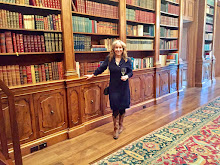The Texas Real Estate Center (creator and keeper of important statistics) just made a Labor Day announcement recapping the first 6 months of the 2010 market. We've had "tepid improvement" in the Texas economy and "marked improvement" in the housing market over the same period in 2009 largely attributable to government stimulation. Don't break out the champagne yet, because they go on to say "sustainability during the second half of the year with no incentives remains questionable".
Nationally, sales for the first half of the year were up. And like the U.S. housing market, the Texas felt the impact of the tax credit and the aftermath of its withdrawal. Texas home sales showed a healthy increase of 11.1 percent over the first half of 2009. Monthly sales of homes in Texas increased in March, April and May (total sales were up 13%, 14.5% and 11%, respectively), but June’s sales fell nearly 1% and July’s sales dropped more than 25% from July 2009.
"It appears that Texas housing sales, like U.S. sales, peaked in May rather than the typical June or July cyclical high. Sustaining the momentum from the first half of the year into the second half may be difficult," says Research Economist James Gaines. "The decline in July sales and a surprisingly large increase in the number of properties offered for sale in June and July caused the number of months of inventory to rise from 6.6 months in January to 8 months in July. Although high by recent years’ standards, this is still significantly below the nearly 1 year’s amount of inventory available at the national level."
Home prices stayed relatively stable during the first half of 2010. The Texas median home price increased an average of 1.5% per month over the six-month period, and the national median existing home price increased 0.3% per month on average. Prices are expected to be stifled for the rest of the year due to the combination of high inventories, foreclosures, loan defaults, distressed sales, lack of government incentives and generally low consumer confidence.
Dr. Gaines says that "The second half of 2010 holds significant challenges for the housing market. It remains to be seen to what extent the private market can support the market without significant government inducements. Pending sales, nationally and in most Texas communities, and applications for purchase mortgage financing are depressed substantially, indicating much-reduced sales volumes in the next few months."
"Statistically, the second half of 2010 (and perhaps early 2011) could be misleading. If the general economy does not improve, the housing market will continue to be weak, and will perhaps look even weaker than it really is. The government tax credit for buyers induced many to purchase homes rather than renting or to purchase earlier than they had planned. As sales were drawn forward, subsequent months will experience a drop off in volume."
Today’s housing market is not being driven by the low interest rates, but by jobs (or the lack thereof) and falling consumer confidence in the economy. Historically low interest rates are being offset by tighter mortgage requirements anyway. And many homeowners no longer are purchasing solely for the investment appeal. Today's buyers are purchasing a home as a place to live rather than a means to “get rich quick”.
[where: 75230]
Sep 6, 2010
Subscribe to:
Post Comments (Atom)


No comments:
Post a Comment